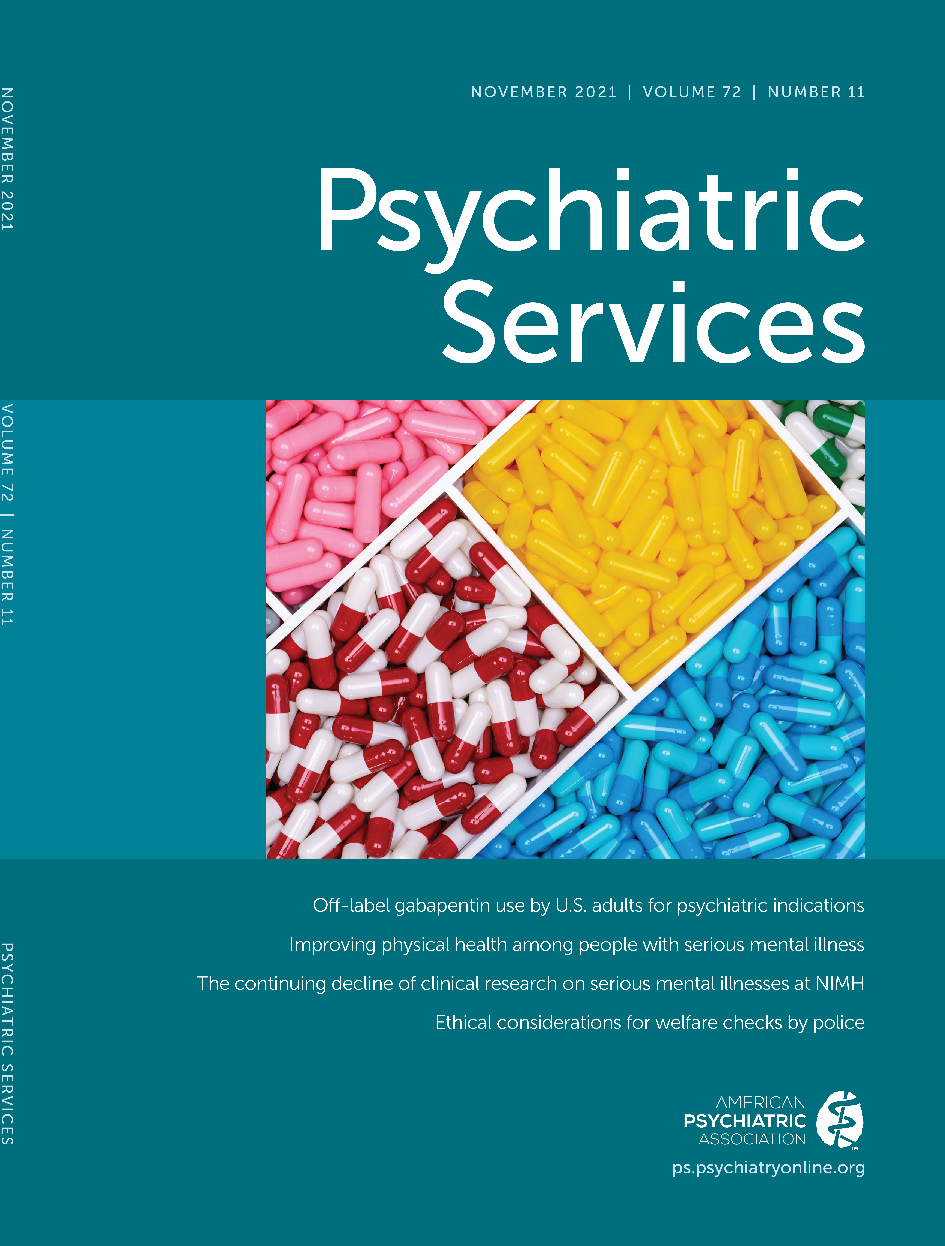COVID-19 Vaccine Hesitancy in the Inpatient Psychiatric Setting
TO THE EDITOR: From the early stages of the COVID-19 pandemic, there have been concerns about the effect of the pandemic on patients with mental illness. Studies have demonstrated that patients with severe mental illness are at high risk for SARS-CoV-2 infection and COVID-19–related morbidity and mortality (1, 2). COVID-19 vaccines are effective in preventing the morbidity and mortality associated with COVID-19 and are recommended for all people age 12 years and older (3). Unfortunately, the acceptance of the COVID-19 vaccine among patients with mental illness is currently unknown.
With great interest we read Brown and Bell’s report, “Role of Psychiatric Hospitals in the Equitable Distribution of COVID-19 Vaccines” (4) and would like to share our institutional experience. UTHealth Harris County Psychiatric Center (HCPC) is a 274-bed freestanding safety-net inpatient psychiatric hospital and the largest provider of inpatient psychiatric care in the Houston metropolitan area. With improved access to COVID-19 vaccine in our community and following state guidelines, HCPC began offering the Moderna vaccine to all adult patients on March 29, 2021.
Between March 29 and May 21, 2021, a total of 418 adult patients were offered the vaccine; however, only 198 (47%) accepted the first dose. Uptake was lower than the percentage of the greater Houston community population vaccinated with at least one dose (60%). Baseline characteristics of patients who accepted and refused the vaccine were statistically similar. Of note, a majority of HCPC patients offered the vaccine were male (63%, N=266), admitted involuntarily (65%, N=273), younger than age 50 (85%, N=354), and had completed less than a high school education (57%, N=236).
A survey adapted from the World Health Organization Working Group on Vaccine Hesitancy (5) and approved by institutional review board was administered to 25 patients who refused testing. Common reasons for refusal included preference to wait and see what other people do (64%, N=16), lack of trust in the pharmaceutical industry (64%, N=16), lack of trust in media for information on vaccine (64%, N=16), and being concerned about risks associated with the COVID-19 vaccine (60%, N=15). It is worth noting that 92% (N=23) of these patients were concerned about COVID-19 illness and 76% (N=19) expressed trust in their physicians to talk about the risks and benefits of vaccines. Although the survey sample size was limited, surveyed patients were demographically and clinically representative of the overall HCPC patient population.
Considering that patients with severe mental illness are at high risk for SARS-CoV-2 infection and COVID-19–related morbidity and mortality, they must be offered early access to safe and efficacious vaccines. Considering that transportation to and retention in outpatient care could be a challenge for patient populations with serious mental illness, inpatient psychiatry settings could be a site of vaccination to improve vaccination efforts in certain communities. Psychiatrists and other health care professionals treating patients with severe mental illness should be aware and knowledgeable of the different types of vaccines and of their safety and efficacy, and clinicians should actively recommend them for their patient population. There is an urgent need to design interventions to improve acceptance of COVID-19 vaccine, including among patients with severe mental illness.
1. : Bidirectional associations between COVID-19 and psychiatric disorder: retrospective cohort studies of 62 354 COVID-19 cases in the USA. Lancet Psychiatry 2021; 8:130–140Crossref, Medline, Google Scholar
2. : Association of psychiatric disorders with mortality among patients with COVID-19. JAMA Psychiatry 2021; 78:380–386Crossref, Medline, Google Scholar
3. : General Best Practice Guidelines for Immunization. Vaccine Recommendations and Guidelines of the ACIP. Atlanta,
4. : Role of psychiatric hospitals in the equitable distribution of COVID-19 vaccines. Psychiatr Serv 2021; 72:1080–1083Link, Google Scholar
5. SAGE Working Group on Vaccine Hesitancy. Geneva,



